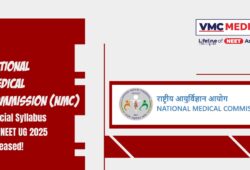IIT Delhi’s Progressive Step: Easing Academic Pressure for Student Well-being
 Posted On
Posted On
387 total views, 1 views today
In a groundbreaking move, the esteemed Indian Institute of Technology, Delhi (IITD), has recently undergone a transformative shift in its evaluation system, resonating with a global conversation about student mental health and academic pressures. Recognizing the alarming rise in student suicides across various IIT campuses, IIT Delhi has decided to alleviate the mounting stress by introducing reforms that redefine its examination structure. This pivotal decision, stemming from an internal survey and thorough discussions with students and faculty, showcases a commitment to fostering a conducive learning environment that prioritizes holistic well-being.

A Thoughtful Shift: Redefining Evaluation
Traditionally, IITs have followed a rigorous assessment structure, which includes multiple mid-semester exams in addition to the final exams. However, responding to student feedback and mounting concerns about academic pressure, IIT Delhi has courageously taken the step of eliminating one set of mid-semester exams. Now, the evaluation process encompasses two sets of examinations alongside regular assessments. This adjustment is aimed at alleviating the burdensome examination schedule that students often grapple with. The move is a testament to IIT Delhi’s dedication to nurturing a healthier learning atmosphere.
Director’s Vision: A Compassionate Approach
IIT Delhi’s Director articulated the rationale behind this transformative shift, emphasizing the institution’s unwavering commitment to its students’ mental and emotional well-being. The decision, which has garnered the approval of the senate, aims to create an equitable balance between academic rigors and students’ mental health. The director stated, “We felt that the examination schedule was too cumbersome, so decided to reduce the burden and stress of the students.” To ensure fairness, a maximum overload limit of 80 percent weightage has been established for both sets of exams. This approach signifies a pivotal shift towards a more compassionate and nurturing educational ecosystem.
The Council’s Embrace of Change: A Holistic Perspective
The transformational journey of IIT Delhi’s evaluation system is deeply interconnected with the larger discourse around student mental health across IIT campuses. In a meeting held in April, the IIT Council underscored the necessity for a robust grievance redressal system, enhanced psychological counseling services, and a reduction in stress and fear of failure among students. This forward-looking perspective reflects a collective understanding that academic excellence should harmoniously coexist with students’ emotional well-being. The comprehensive dialogue during the meeting recognized the urgency of addressing student suicides, promoting inclusivity, and safeguarding mental health.
A Disturbing Trend: Rising Student Suicides
Disturbingly, recent data shared in Parliament exposed a disheartening trend: a surge in student suicides across IITs in the last five years. The figures revealed that out of 98 cases of student suicides in higher educational institutions of India between 2018 and 2023, a staggering 39 cases originated from IITs. The urgency to address this alarming crisis underscores the significance of IIT Delhi’s paradigm shift in its evaluation system. By actively engaging with the psychological and emotional aspects of students’ lives, IIT Delhi seeks to disrupt this concerning trend and create an environment that fosters resilience and well-being.
A Holistic Approach: Strengthening Student-Faculty Interaction
IIT Delhi’s transformative initiative extends beyond restructuring evaluations. The institution is committed to amplifying student-faculty interactions and mentorship opportunities. Recognizing the importance of fostering camaraderie and open communication, IIT Delhi is augmenting its efforts to encourage informal interactions between students and teachers. Initiatives like ‘Student-Teacher Liaison Council’ and ‘Open House’ sessions are gaining prominence as platforms for constructive dialogue outside the confines of the classroom. These endeavors underscore IIT Delhi’s endeavor to create a supportive community that values students’ voices and well-being.
Cultivating Resilience: Embracing Failure
The competitive nature of the entrance process to IITs often results in assembling brilliant minds within a single classroom. While academic excellence is the cornerstone of IITs, addressing failure is equally crucial. IIT Delhi’s Director aptly recognizes this challenge and emphasizes the importance of guiding students in coping with failures. The institution’s focus on nurturing resilience and emotional intelligence prepares students not only for academic triumphs but also for navigating life’s inevitable setbacks. This holistic approach to education fosters a culture of growth, empathy, and adaptability.
Final Thoughts
IIT Delhi’s resolute step to revamp its evaluation system serves as a beacon of hope and transformation in the realm of higher education. By recognizing the intrinsic connection between academic pressures and student mental health, the institution has embarked on a journey that transcends conventional norms. This visionary move, backed by thoughtful discussions, embodies a commitment to nurturing well-rounded individuals who excel not only in academics but also in emotional intelligence and resilience. As IIT Delhi paves the way, it sends a powerful message to the education community worldwide: that fostering student well-being is a responsibility that must be shared by institutions, educators, and society as a whole.




